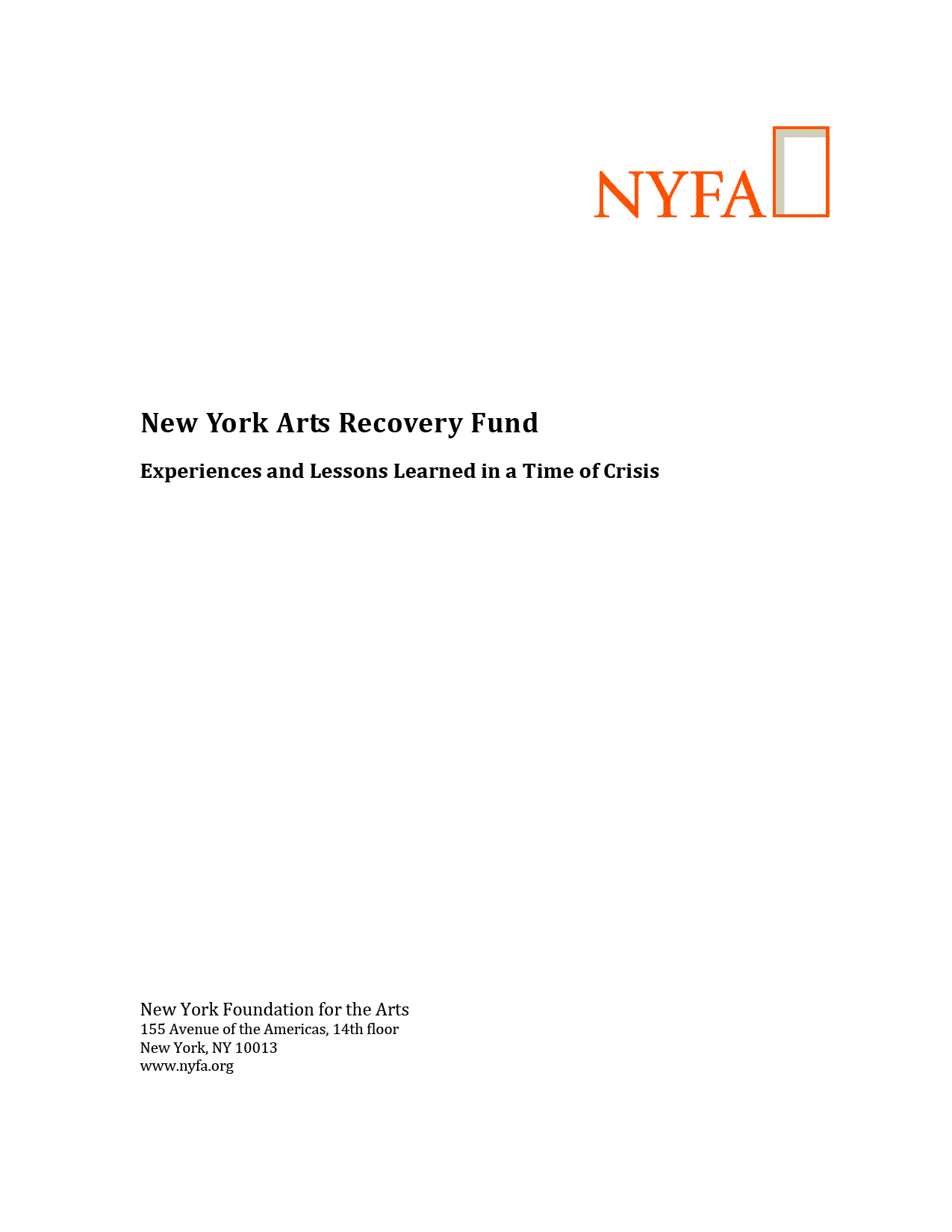Technical Assistance
The Barr Foundation (Barr) seeks consultant partners to support the newly launched cohort, Powering Cultural Futures (PCF), a new six-year initiative that provides funding, technical assistance, peer networking, and other supports to a diverse cohort of 15 BIPOC-rooted organizations in Massachusetts.
Read More...
Download:
Read More...65 pages, January 2013. Pew Research Center’s Internet & American Life Project, 1615 L St., NW – Suite 700, Washington, D.C. 20036, (202) 419-4500, http://pewinternet.org/Reports/2013/Arts-and-technology.aspx.
Download:
Read More...Spurred on by technological advances, the number of aspiring professional artists in the United States has reached unprecedented levels. The arts’ current system of philanthropic support is woefully underequipped to evaluate this explosion of content — but we believe that the solution to the crisis is sitting right in front of us. Philanthropic institutions, in their efforts to provide stewardship to a thriving arts community, have largely overlooked perhaps the single most valuable resource at their disposal: audience members.
Read More...October 2011, 32 pages. Monitor Institute, 101 Market Street, Suite 1000, San Francisco, CA, 94101, (415) 932-5300 www.monitorinstitute.com.
Read More...— Melissa Franklin, director of the Pew Fellowships in the Arts
The world is constantly evolving in how it uses technology. In consequence, the arts field has struggled, adapted, and sometimes excelled in its own utilization of technology. To capture and better understand these trends, The Andrew W. Mellon Foundation commissioned a study of technology usage in the arts field to learn about organizations’ practices and needs. This report combines a comprehensive survey of the arts field with more recent in-depth qualitative research.
Read More...May 2010, 49 pages. Center for Strategic Philanthropy and Civil Society, Sanford School of Public Policy, Duke University, Box 90524, Durham, NC, 27708, 919-613-7432 www.sanford.duke.edu
Read More...Report on the efforts following the 500 year floods that occurred in the Red River and Minnesota River Valleys in Minnesota and North Dakota in 1997. It serves as a report on the progress made and can also serve as a blueprint for other communities.
Download:
![]() When the Hot Dishes Stop Coming (191Kb)
When the Hot Dishes Stop Coming (191Kb)




